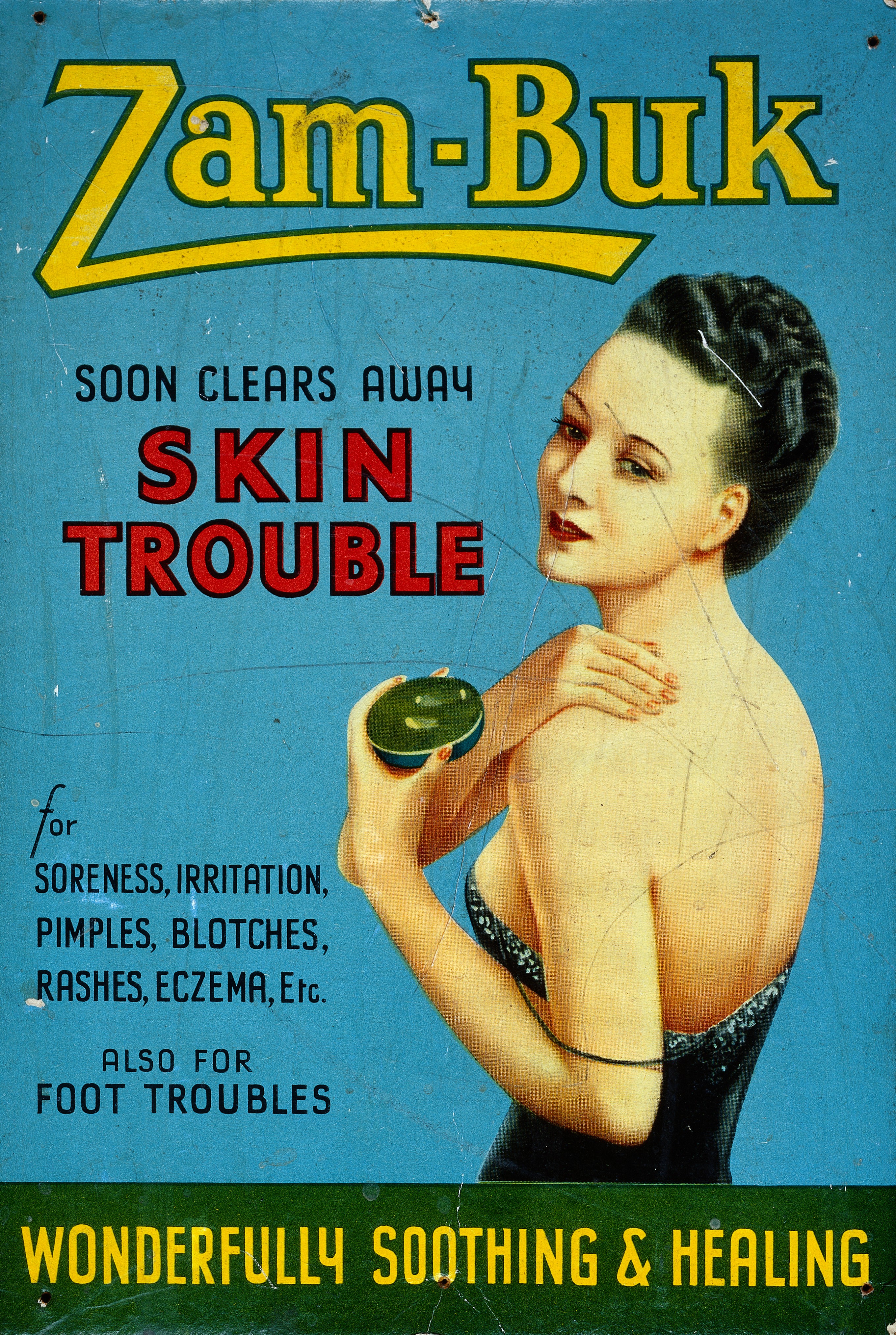Zam-Buk was a patent medicine produced by the Zam-Buk Company of Leeds, England, founded by Charles Edward Fulford. It was first sold by his Bile BeansLaxative and tonic first marketed in the 1890s. The product supposedly contained substances extracted from a hitherto unknown vegetable source by a fictitious chemist known as Charles Forde. company in 1902,[1] as a herbal balm and antiseptic ointment; the use of a complementary Zam-Buk soap was recommended to augment the treatment. The ointment was advertised as being effective against a wide range of conditions, including cuts, bruises, sprains, freckles, ulcers, bleeding piles and even colds and toothache. It could also be used as an embrocation by rubbing it into the muscles of the back, legs or feet.[2]
The source of the name is uncertain, but a link to South Africa has been suggested. The brand name was at one time used to refer to ambulance-men and first aiders at rugby league matches in Australia and New Zealand.[3]
Formulation
In the early 20th century it was reported that the formulation comprised 66% paraffin wax, 20% pale resin (colophony), and 14% eucalyptus oil, with small amounts of other ingredients.[2] More recently, the composition was given as 5% eucalyptus oil, 1.8% camphor, 0.5% thyme oil, and 0.65% sassafras oil.[4] A 1908 report published in The British Medical Journal estimated that the cost of ingredients for a standard 0.6-ounce (17 g) box was one farthingBritish coin with the value of one quarter of an old penny, 1/960 of a pound sterling., yet its retail price was 1s 1½ d,[2] a markup of 5,200%, equivalent to a gross margin of more than 98%.
Branding and production
When Radio Luxembourg started longwave commercial radio broadcasts in English in 1933, its first advertisers were Fulford’s Zam-Buk and Bile Beans.[5] The Zam-Buk brand and trademark were eventually acquired by Fisons, but production ceased in 1994 after the business was sold to Rhone-Poulenc; the product was revived in the United Kingdom by Rose & Co. in 1996.[6] After the original trademarks expired, Rose & Co successfully resisted a new application by a third party to register Zam-Buk as a trademark in 2008.[7] As of 2018 the trademark for Zam-Buk is registered to Bayer Consumer Care AG in Australia, Canada and the United States.[8][9][10]

